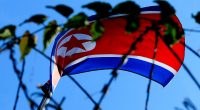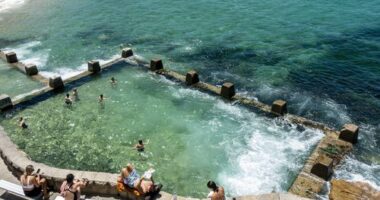Share this @internewscast.com
This would be detrimental for both tour operators and visitors, as well as for Antarctica and the global ecosystem.
The answer may lie in economics.
Future visitor trends
A small percentage of visitors travel to the Ross Sea region and parts of the continent’s interior.

The majority of tourism in Antarctica consists of cruise-ship visits to the Antarctic Peninsula. Source: Getty / Wolfgang Kaehler/LightRocket
Antarctic tourism is managed by an international set of agreements, together known as the Antarctic Treaty System, as well as the International Association of Antarctica Tour Operators (IAATO).
The treaty system is notoriously slow-moving and riven by geopolitics, and IAATO does not have the power to cap visitor numbers.
Pressure on a fragile continent
On average, each cruise ship passenger traveling to Antarctica generates between 3.2 to 4.1 tonnes of carbon emissions, excluding their journey to the embarkation point. This figure is comparable to the annual carbon output of an average individual.

Tourism in Antarctica can compound damage from climate change, tipping delicate ecosystems into decline. Source: AAP / Mary Evans
Global warming caused by carbon emissions is damaging Antarctica. In the Peninsula region, glaciers and ice shelves are retreating and sea ice is shrinking, affecting wildlife and vegetation.
IAATO has pledged to halve emissions by 2050 — a positive step, but far short of the net-zero targets set by the International Maritime Organization.
Can economics protect Antarctica?
Research shows these tools could also prevent Antarctic tourist numbers from getting out of control.
Any cap on tourist numbers in Antarctica and rules for trading must be based on evidence about what the environment can handle.
This could be backed by robust monitoring and enforcement to avoid greenwashing.














